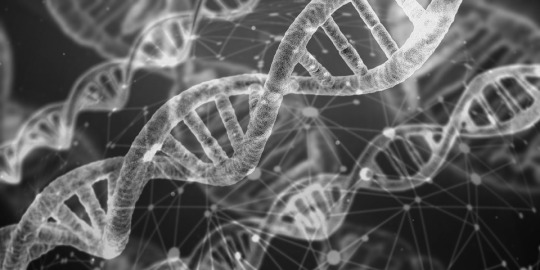Welcome to the inner ramblings of a kid just trying to get through Dispute Resolution.
Don't wanna be here? Send us removal request.
Text
Life, Death and Litigation

Litigation is the most expensive method of dispute resolution, with this issue of costs being a major disadvantage for its use as a means of settlement. It appears almost counter-intuitive then, that a causal factor of litigation is the recovery of money. I find myself asking how can the recovery of money be successful if a large proportion is dedicated to the payment of costs? Unfortunately, I’ve been asking myself this question for two years with still no answer.
My father died in 2017.
We had months of preparation to say goodbye and I thought that once he had passed into whatever great beyond you wish to believe in, that I’d find a sense of peace I hadn’t had since he got sick. See, the thing about having a father that remarried to what I will colourfully call an absolute whack job, and an incredibly large family that are the epitome of overbearing, means that there’s a whole lot of office politics to navigate through. It often felt like I was the only adult in the room, despite being nothing more than a child.
I assumed that given my father’s desire to control what happened after his death, that his will and everything subsequent would go along without hitch. My father’s last act in this world was creating a document that looked after the people he loved. I naively assumed that everyone would respect his last and final act. Boy, was I wrong.
My father’s widow is contesting the distribution of assets. Because of principle or pride, I don’t know. Unfortunately, contesting a will is often successful (1), which suggests my evil stepmother may be victorious. Here’s the thing though, my father’s estate is nothing to be desired. In fact, it’s not worth fighting over. It seems I’ve become nothing more than a piece of evidence supporting the finding that the size of the estate doesn’t matter when contesting a will (2).
So why are people intent on fighting to the death over measly estates?
Grief. A single word that echoes and a feeling that brings people to their knees. It’s a monster that makes us doubt all we said and did. We don’t want to let go but we do want the world to know we were loved. And that quantification of love is reflected in how much we were given. My father’s widows’ grief wants to show the world that she was loved above us all, hence the dispute.
If it were my decision, I wouldn’t fight. I don’t need and never needed a sum of money to know I was loved. Pity my family doesn’t feel the same. My sisters want to fight “because it’s ours”. But really, they don’t care as long as it isn’t hers. And that is what grief does, it creates a competition to see who was loved the most.
Brigham A. Fordham explains that a good lawyer must look beyond the immediate situation, explaining various options and likely consequences (3). But even if a good lawyer said that litigation wasn’t viable, it still wouldn’t matter because of our collective grief. If only I could convince my sister’s and myself to forgive and forget. If only I could communicate amicably with my stepmother. If only we could all agree that each of us was loved.
Time will tell whether my father’s estate survives but, in the meantime, I can’t help but feel horrified that my father has been reduced to a mere money bank.
Word Count: 578
(1) Barbara Drury, ‘Make your wishes everlasting’, Sydney Morning Herald (online), 11 June 2015 <https://www.smh.com.au/money/planning-and-budgeting/make-your-last-wishes-everlasting-20150610-ghkt37.html>.
(2) Cheryl Tilse et al, ‘Having the Last Word? Will Making and Contestation in Australia’ (2015) University of Queensland, 17.
(3) Brigham A. Fordham, ‘A Good Lawyer’ (2014) 64 Judicial Legal Education 334, 336.
0 notes
Text
The Apology and Me

What a world it would be, if a simple apology could forgive all our misgivings.
I know for a fact, that natural selection would eliminate me from that world because I can’t apologise to save my life. You see, I grew up in a family where apologies were few and far between. It’s not in our DNA, my mother would say. That appears to be her go to excuse for everything, but that’s beside the point.
The problem was that even if an apology was issued, it never meant anything. Not only because the apology lacked sincerity, but because there was never any admission of fault. The apology always came from a perspective of risk management rather than a place of responsibility. My family and myself appear to fall into the group of people who can’t apologise because we rarely feel as though we’ve done something seriously wrong (1). I would even propose that if the apology was sincere, included an admission of fault that came from a place of responsibility, that it wouldn’t matter. Maybe this is because of the collective stubbornness of my family, but I would bet it’s got more to do with our individual pride than anything else.
Given this, I find it hard to believe that people are willing to accept a simple apology for offences such as sexual assault. A mother explained that one of the benefits of a restorative engagement program for defence abuse, was the fact that she witnessed an apology to her daughter that acknowledged the effect of the sexual assault (2). Even in the group activities that involved negotiation and mediation, it never crossed my mind to issue a simple apology even though the parties wanted one.
This leads me to my final point. I can clearly see the merits of an apology and can even understand how an apology could be beneficial. And even though, I have come to recognise that my own thoughts surrounding apologies are way out of whack and clearly detrimental to my character, I don’t think I’ll ever be the person that could forgive with a simple apology.
Take my money hungry witch of a stepmother. If she sat down with me right now and apologised for all the horrible things she did while my dad was dying and after his death, I wouldn’t accept it. Even if it was sincere, admitted fault and came from a place of responsibility. I wouldn’t, even though I now know that an apology would allow for a quicker and more definitive resolution. This reflects my own stubbornness and pride as well as my inability to forgive. And yes, it clearly shows I’m not over what she has done and that maybe I never will be.
I guess it’s like my mother always said, it’s just not in my DNA.
Word Count: 469
(1) Jeff Kichaven, Apology in Mediation: Sorry to Say, It’s Much Overrated (September 2005) Mediate.com, <https://www.mediate.com/articles/kichavenJ2.cfm>.
(2) Commonwealth Ombudsman, Defence Abuse – Restorative Engagement Program, <https://www.ombudsman.gov.au/__data/assets/pdf_file/0021/46920/RE-factsheet-updated.pdf>.
0 notes
Text
The Volatile Cycle

As a child I couldn’t stand to be in the same room as my father, something I now regret. The sight of him used to rile me up, my vocal chords always dancing in anticipation at the incoming screaming match that would inevitably occur. This volatility lasted my entire childhood because we didn’t know how to communicate. Then suddenly, both of us woke up from a nightmare and we could see eye to eye, we could even understand each other. I remember thinking the war was over.
The cycle of volatility didn’t stop because not long after my father and I became each other’s confidants, my mother and I embarked on a decade long war. The conflict between us was raw and destructive. My mother couldn’t stand the sight of me and hated the fact that I couldn’t side with her. My neutrality was her kryptonite; it killed her to know that the child that hated her father didn’t hate him anymore, even after his betrayal. I would go weeks without speaking to her and on numerous occasions all I wanted to do was scream. History repeated itself once more, and when I moved out, the both of us woke from a nightmare and we could understand each other. I wouldn’t say we see eye to eye, but we certainly don’t fight like we used to.
You’re probably thinking at this point; the volatile cycle is over. Honestly, I wish it was. I should have learnt my lesson, but alas, I am flawed. I have two younger sisters, and do we get along? If you said no, please give yourself a pat on the back. If it wasn’t for the faint resemblance I have to them both, I would believe I was adopted because we operate on entirely different planes of existence.
Unlike with my parents however, I have the benefit of hindsight. The conflict I have with my siblings is primarily relationship-based because communication is non-existent, and trust has long since disintegrated. If we never manage to resolve our conflict then it leaves us at risk of estrangement (1), which if you ask me is very likely. However, siblings play a major role in developing skills for conflict management and resolution (2). So really it would be beneficial for me to accept my sister’s thought patterns and work around them. It would allow me as an individual to be a better lawyer and a better human being because my conflict management and resolution skills would progress. Inevitably, I as a person would evolve and maybe I wouldn’t be stuck in the nightmare that is the volatile cycle.
And maybe instead of waking up from a nightmare, I’d be entering a dream.
Word Count: 452
(1) Sara Eckel, ‘Why Do Adult Siblings Stop Speaking? The Psychology Behind the Not So Rare Phenomenon’ Reader’s Digest (online) 9 March 2015 < https://www.rd.com/advice/relationships/adult-sibling-estrangement/>.
(2) Heidi R. Riggio, ‘Measuring attitudes towards adult sibling relationships: The Lifespan of Sibling Relationship Scale’ (2000) 17(6) Journal of Social and Personal Relationships 707, 708.
0 notes
Text
My World vs. Yours

“To them it’s their world.” – Dr Bertus de Villiers
In the self-absorbed society we live in, it’s easy to forget how caught up we are in our own world. It’s easy to deny the feelings of others as inconvenient or irrelevant because we’re too busy worried about the perception of ourselves, resulting in a lack of empathy and an inability to cooperate (1). Everyone assumes it’s a Millennial issue, but I’m not sure about that. I mean, we had to learn it from someone didn’t we? Our Baby Boomer and Gen X parents wanted to improve our chance of success, instilling in us a greater sense of self-esteem (2). So next time they complain, just tell them they brought it on themselves.
My greater sense of self-esteem isn’t the only way I learnt self-absorption. When my parents fought, with each other or with me, they only ever cared about their world. Their argument. Their resolution. So, in a way, the self-absorption that I exhibit models their arguments. When I argue, I never want to budge from my own position. I’m too self-absorbed in my opinion and my resolution that nothing else matters. I do think however, that I’ve learnt from my parents’ mistakes. This is not to say that I’m not self-absorbed because in the end we all suffer a little from that. But it is to say that maybe I’m not as self-absorbed as my parents were. I taught myself to be neutral and trained myself to see things from different perspectives. You’d be surprised, how easy it is. You’d also be surprised at how much more work I still must do to master the ability to see and understand other perspectives.
Conflict makes us forget about perspectives. The anger, the betrayal, all of it blinds us. This self-absorption is the thing preventing us from seeing other points of view. We don’t want to know their world, because at that moment, it’s only our world that matters. It’s only what we want that matters. Similarly, it’s easy to dismiss the anger and betrayal of others as nothing because only our world matters. But here’s the thing. To them it is their world. Conflicts that seem ridiculous or unreasonable are what the universe of the other person hinges on. It’s easy to laugh and ridicule someone else because they’ve taken a slight way out of proportion, but we’re all guilty of that.
When my father died, my world didn’t matter. I put my grief on hold while I tried to save my sisters from themselves and watched the woman who was supposed to love my father tarnish his name. My father was her world. In her world, only her grief mattered. In her world, contesting his will matters to her. And if I’m to practice what I preach then I guess I must accept that. Even though my entire being despises every single piece of her and the mockery she made of grief. I just wish she would take the time to understand my world. My perspective.
Maybe if she did, it wouldn’t be so easy to hate her.
Word Count: 517
(1) Ronald E Riggio, ‘Are We All Becoming More Self-Centred?’ Psychology Today (online) 27 July 2017 <https://www.psychologytoday.com/au/blog/cutting-edge-leadership/201707/are-we-all-becoming-more-self-centered>.
(2) Joel Stein, ‘Millennials: The Me Me Me Generation’ TIME (online) 9 May 2013 <http://time.com/247/millennials-the-me-me-me-generation/>.
1 note
·
View note